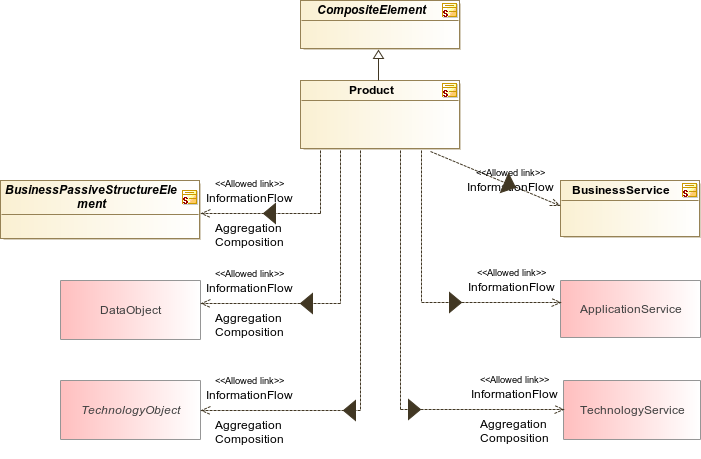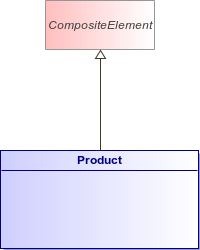
ArchiMate Metamodel
This definition covers both intangible, services-based, or information products that are common in information-intensive organizations, and tangible, physical products.
A financial or information product consists of a collection of services, and a contract that specifies the characteristics, rights, and requirements associated with the product. "Buying" a product gives the customer the right to use the associated services.
Generally, the product element is used to specify a product type. The number of product types in an organization is typically relatively stable compared to, for example, the processes that realize or support the products. "Buying" is usually one of the services associated with a product, which results in a new instance of that product (belonging to a specific customer). Similarly, there may be services to modify or destroy a product.
A product may aggregate or compose business services, application services, and technology services, business objects, data objects, and technology objects, as well as a contract. Hence a product may aggregate or compose elements from other layers than the Business Layer.
A value may be associated with a product. The name of a product is usually the name which is used in the communication with customers, or possibly a more generic noun (e.g., "travel insurance").


